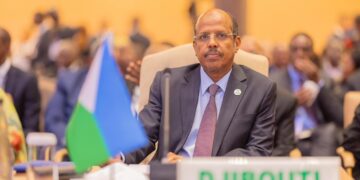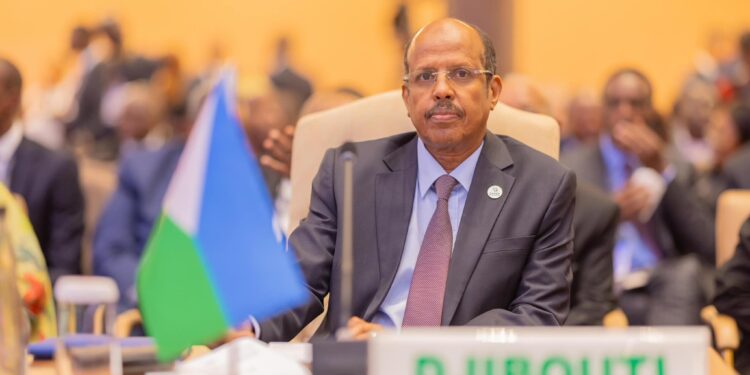Addis Ababa, Ethiopia – Djibouti’s Foreign Minister Mahamoud Ali Youssouf has been elected as the new chairperson of the African Union (AU) Commission, making him the 14th leader of the continental body since its transition from the Organisation of African Unity (OAU) in 2001.
Youssouf, a veteran diplomat, takes over from Chad’s Moussa Faki Mahamat, who served two terms from 2017 to 2025.
Youssouf garnered 33 votes while Kenya’s former prime minister, Raila Odinga, dropped from race on the sixth round.
His election is historic in several ways. He becomes only the fourth leader from outside the dominant West and Central African bloc to head the AU and its precursor, the OAU.
Additionally, Djibouti, a small but strategically significant country in the Horn of Africa, has now secured a key leadership role in African diplomacy.
Patterns and Peculiarities of AU Leadership
One of the intriguing aspects of AU/OAU leadership is its contrast with the political landscape of many African nations.
While several African heads of state have resisted term limits, no AU Commission leader has ever exceeded the prescribed two terms.
The shortest tenure was held by Ethiopia’s Kifle Wodjo, the first OAU Secretary-General, who served only 15 months from 1963 to 1964.
Historically, the AU remains a largely male-dominated institution. South Africa’s Nkosazana Dlamini Zuma remains the only woman to have led it, serving from 2012 to 2017.
Furthermore, Cameroon stands out as the only country to have produced successive OAU Secretaries-General, with Nzo Ekangaki (1972–1974) and William Eteki (1974–1978) both holding the post.
Interestingly, despite North Africa’s strong influence in AU affairs, no leader from the Arab-speaking region has ever been at the helm of the commission.
A Legacy of Leadership: Past AU and OAU Heads
The AU and its forerunner, the OAU, have had a mix of strong and transitional leadership since their formation.
Below is a list of its past heads:
2025–present – Mahamoud Ali Youssouf (Djibouti)
2017–2025 – Moussa Faki Mahamat (Chad)
2012–2017 – Nkosazana Dlamini Zuma (South Africa)
2008–2012 – Jean Ping (Gabon)
2003–2008 – Alpha Oumar Konaré (Mali)
2001–2003 – Amara Essy (Côte d’Ivoire) (interim, during OAU–AU transition)
1989–2001 – Salim Ahmed Salim (Tanzania)
1985–1989 – Ide Oumarou (Niger)
1983–1985 – Peter Onu (Nigeria)
1978–1983 – Edem Kodjo (Togo)
1974–1978 – William Eteki (Cameroon)
1972–1974 – Nzo Ekangaki (Cameroon)
1964–1972 – Diallo Telli (Guinea)
1963–1964 – Kifle Wodjo (Ethiopia)
What Lies Ahead for Youssouf?
As Mahamoud Ali Youssouf assumes leadership of the AU Commission, he faces pressing challenges, including conflict resolution efforts, continental trade expansion under the African Continental Free Trade Area (AfCFTA), and managing Africa’s geopolitical positioning in a rapidly changing global landscape.
His diplomatic expertise, honed over years as Djibouti’s top diplomat, will be crucial in steering the AU through its next phase of institutional reforms and policy implementation.
His leadership will also be watched closely to see whether he breaks any of the longstanding AU/OAU patterns—or sets new ones.









